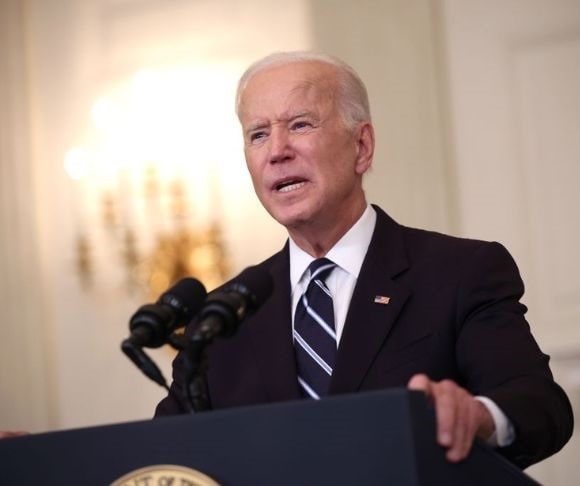Despite his derision of “Mega MAGA Republicans” who have adopted Trumponomics, President Joe Biden has embraced one component of his predecessor’s economic doctrine: trade protectionism. In fact, the protectionist tenet of Bidenomics is a nearly carbon copy of former President Donald Trump’s policies, except the part that involves directly giving billions of dollars in taxpayer money to multinational corporations and Chinese-linked firms. But whether it is the Buy American mantra or subsidizing wealthy companies, this public policy pursuit might backfire, especially in the national push to go green. After China’s latest announcement, the left’s transition to sustainability might be under threat.
China Laughs at Biden’s Trade Protectionism
The Chinese government announced on Aug. 1 that it would be imposing export controls on two rare earth metals: gallium and germanium. The Ministry of Commerce stated that the policy, which is meant to “safeguard national security and interests,” will prohibit the export of these metals unless a license is obtained from Beijing.
“Export operators should go through export licensing procedures in accordance with relevant regulations, submit an application to the Ministry of Commerce through the provincial commerce department, fill out the application form for export of dual-use items and technologies and submit the following documents,” the government said in a statement.
This is a consequential decision for the United States for many reasons. First, Beijing controls much of the world’s processing and refining of rare earth metals. Second, the two components in question have become critical for manufacturing electric vehicles, solar panels, wind turbines, and defense weapons since gallium is typically found in semiconductors and transistors. With the Inflation Reduction Act, the CHIPS Act, and the flood of taxpayer-funded money flowing through the green economy, it could prove to be challenging to achieve the president’s aims. Meanwhile, experts purport that this measure was in response to Biden’s latest trade protectionism that consisted of banning exports of chipmaking technology to Beijing amid the recent escalation in US-China tensions.
Biden Pushing Everyone Away
As Liberty Nation noted in May 2023, Biden has launched a global subsidy arms race, forcing governments everywhere to try to emulate Uncle Sam’s deep pockets by begging rich corporations to stay in their countries and expand operations with generous funding. Moreover, one of the key facets of trade protectionism is ensuring that more goods are manufactured and purchased at home, meaning that other markets will no longer be unable to exploit the biggest economy on the planet.

Emmanuel Macron (Photo by Chip Somodevilla/Getty Images)
French President Emmanuel Macron and German Chancellor Olaf Scholz warned that they would retaliate against what they call unfair trade competition from the United States. They claim that the president’s state subsidy plans are market-distorting endeavors since businesses are subsidized to shift their production to the United States. While their grievances are accurate, these actions are little different from what these nations have done for decades. “We need a Buy European Act like the Americans, we need to reserve [our subsidies] for our European manufacturers,” Macron told a local television news channel in October 2022. “You have China that is protecting its industry, the U.S. that is protecting its industry and Europe that is an open house.”
As the 1955 Julie London song goes, “Cry Me a River.”
Still, even if the US government feels justified in its trade protectionism, this would facilitate the unintended consequences of allies and adversaries continuing to run into Chinese President Xi Jinping’s arms. It has been reported that Macron has been trying to get a seat at the BRICS table, anticipating that the bloc consisting of Brazil, Russia, India, China, and South Africa will only expand its tentacles in the coming years. Paris ostensibly wants to have its cake and eat it too by playing both sides of the game.
Although reshoring is an authentic trend, Chinese exports continue to seep into every crevice of the global economy, because of cheap products or Belt and Road Initiative partnerships. In the first quarter of 2023, China’s green-related shipments surged 66.9%, buoyed by solar batteries, lithium-ion batteries, and electric vehicles. These environmentally friendly exports contributed 2% to the country’s overall export growth, up from 1.7% in 2022. In addition, customs figures revealed that these products were shipped to more than 200 markets, led by the United States, eurozone, the United Kingdom, and South Korea.
 Let’s face it: China has garnered tremendous influence on the world stage, serving as the largest sovereign creditor to developing markets. Washington has been trying to curtail Beijing’s stranglehold by promising to give more money to international financial institutions, like the International Monetary Fund and the World Bank. But is it too late for the United States to oust China from this role? If countries are desperate to go green and Beijing possesses the world’s largest inventories of rare earth metals, the international community will be beholden to the Red Dragon.
Let’s face it: China has garnered tremendous influence on the world stage, serving as the largest sovereign creditor to developing markets. Washington has been trying to curtail Beijing’s stranglehold by promising to give more money to international financial institutions, like the International Monetary Fund and the World Bank. But is it too late for the United States to oust China from this role? If countries are desperate to go green and Beijing possesses the world’s largest inventories of rare earth metals, the international community will be beholden to the Red Dragon.
Trade Protectionism Is Bad Economics
Trade protectionism is bad news under both Republicans and Democrats.
Former President Donald Trump’s trade dispute with China cost US taxpayers tens of billions of dollars because he cut a check to farmers impacted by his administration’s tit-for-tat tariff battle with Beijing. After the Great Recession, President Barack Obama signed the American Recovery and Reinvestment Act that included various Buy American requirements, which later was revealed to have bolstered costs exponentially, including steel (40%). In 1930, President Herbert Hoover signed the Smoot-Hawley Tariff Act that raised levies on more than 20,000 imported goods, something that economists agree worsened the Great Depression.
Trade protectionism might seem like a worthy pursuit since proponents will champion employment and national security causes. However, history has regularly revealed that these mechanisms have devastating consequences, except for large corporations and special interests, namely unions. At a time when the geopolitical landscape could metastasize into a war zone at any moment, the protectionist crusade could have far-reaching ramifications for the US and global economy.




